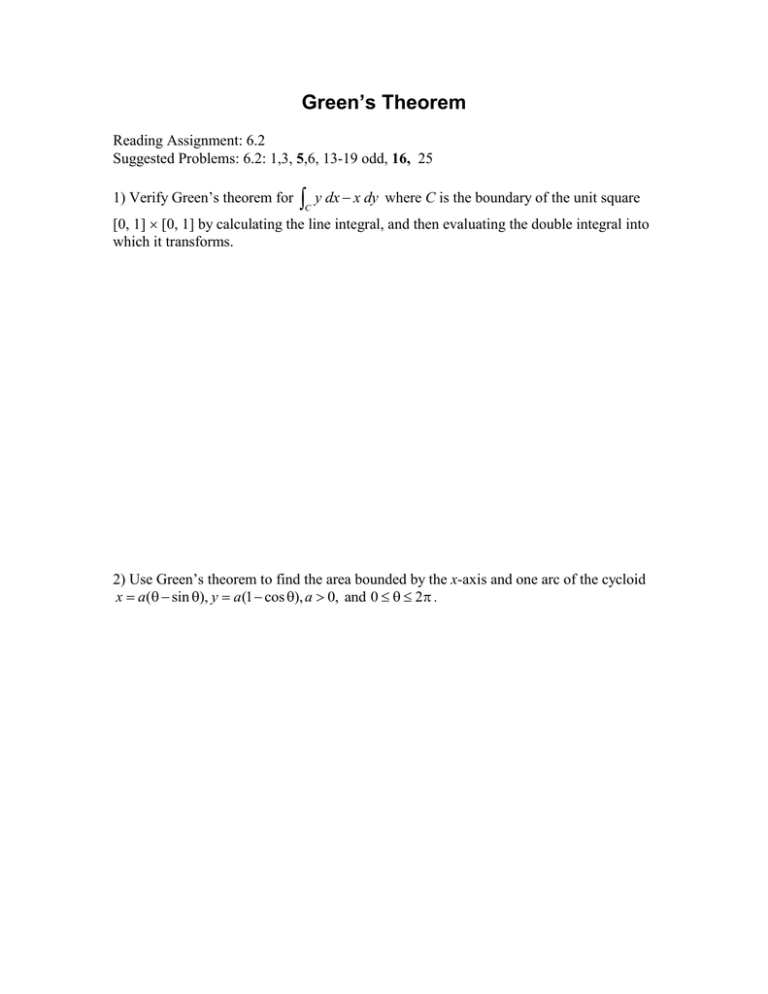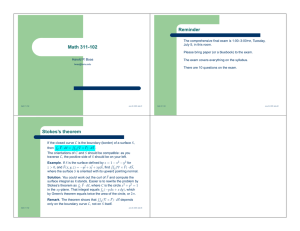HW #20 - Green's Theorem
advertisement

Green’s Theorem Reading Assignment: 6.2 Suggested Problems: 6.2: 1,3, 5,6, 13-19 odd, 16, 25 1) Verify Green’s theorem for C y dx x dy where C is the boundary of the unit square [0, 1] [0, 1] by calculating the line integral, and then evaluating the double integral into which it transforms. 2) Use Green’s theorem to find the area bounded by the x-axis and one arc of the cycloid x a( sin ), y a(1 cos ), a 0, and 0 2 . 3) Verify Green’s Theorem for the functions M(x, y) = 2x3 + y3, N(x, y) = 3xy2, and the region D which is the annulus between the circles of radii a and b (a < b), centered at the origin. Be careful with the orientations! 4) Let D be a region to which Green’s Theorem applies and assume that f(x, y) is a f f 2 f 2 f dx dy 0. harmonic function (i.e., 2 f 2 2 0 ). Prove that x x y D y 5) Let F(x, y) be the vector field 2xyi y 2 j . What is the total outward flow of this field across the ellipse x2 y 2 1? a 2 b2 y x and N ( x, y ) 2 . 2 (x y ) (x y2 ) a) Verify that the curl of Mi + Nj is zero. b) Verify that Green’s Theorem fails for this function on the unit disk. c) Explain. 6) Let M ( x, y ) 2 7) Determine whether Green’s theorem can be used to evaluate the integral y x C x2 y 2 dx x2 y 2 dy where C is the given curve: Explain. a. the line segment from (0,1/2) to (2,1) b. the circle (x – 1)2 + (y – 1)2 = 1 c. the circle x2 + y2 = 1 d. Evaluate the integral in c.

